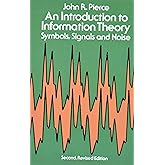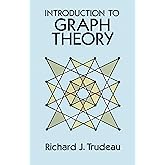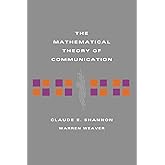
Amazon Prime Free Trial
FREE Delivery is available to Prime members. To join, select "Try Amazon Prime and start saving today with FREE Delivery" below the Add to Cart button and confirm your Prime free trial.
Amazon Prime members enjoy:- Cardmembers earn 5% Back at Amazon.com with a Prime Credit Card.
- Unlimited FREE Prime delivery
- Streaming of thousands of movies and TV shows with limited ads on Prime Video.
- A Kindle book to borrow for free each month - with no due dates
- Listen to over 2 million songs and hundreds of playlists
Important: Your credit card will NOT be charged when you start your free trial or if you cancel during the trial period. If you're happy with Amazon Prime, do nothing. At the end of the free trial, your membership will automatically upgrade to a monthly membership.
Buy new:
-15% $14.37$14.37
Ships from: Amazon.com Sold by: Amazon.com
Save with Used - Good
$13.65$13.65
Ships from: Amazon Sold by: GREENWORLD GOODS

Download the free Kindle app and start reading Kindle books instantly on your smartphone, tablet, or computer - no Kindle device required.
Read instantly on your browser with Kindle for Web.
Using your mobile phone camera - scan the code below and download the Kindle app.

Follow the authors
OK
Information Theory (Dover Books on Mathematics)
Purchase options and add-ons
Designed for upper-level undergraduates and first-year graduate students, the book treats three major areas: analysis of channel models and proof of coding theorems (chapters 3, 7, and 8); study of specific coding systems (chapters 2, 4, and 5); and study of statistical properties of information sources (chapter 6). Among the topics covered are noiseless coding, the discrete memoryless channel, effort correcting codes, information sources, channels with memory, and continuous channels.
The author has tried to keep the prerequisites to a minimum. However, students should have a knowledge of basic probability theory. Some measure and Hilbert space theory is helpful as well for the last two sections of chapter 8, which treat time-continuous channels. An appendix summarizes the Hilbert space background and the results from the theory of stochastic processes necessary for these sections. The appendix is not self-contained but will serve to pinpoint some of the specific equipment needed for the analysis of time-continuous channels.
In addition to historic notes at the end of each chapter indicating the origin of some of the results, the author has also included 60 problems with detailed solutions, making the book especially valuable for independent study.
- ISBN-100486665216
- ISBN-13978-0486665214
- PublisherDover Publications
- Publication dateNovember 1, 1990
- LanguageEnglish
- Dimensions5.35 x 0.66 x 8.42 inches
- Print length368 pages
Frequently bought together

Customers who viewed this item also viewed
Editorial Reviews
About the Author
Product details
- Publisher : Dover Publications (November 1, 1990)
- Language : English
- Paperback : 368 pages
- ISBN-10 : 0486665216
- ISBN-13 : 978-0486665214
- Item Weight : 10.4 ounces
- Dimensions : 5.35 x 0.66 x 8.42 inches
- Best Sellers Rank: #1,325,186 in Books (See Top 100 in Books)
- #153 in Stochastic Modeling
- #160 in Information Theory
- #2,278 in Electrical & Electronics (Books)
- Customer Reviews:
About the authors

Discover more of the author’s books, see similar authors, read book recommendations and more.

Discover more of the author’s books, see similar authors, read book recommendations and more.
Customer reviews
Customer Reviews, including Product Star Ratings help customers to learn more about the product and decide whether it is the right product for them.
To calculate the overall star rating and percentage breakdown by star, we don’t use a simple average. Instead, our system considers things like how recent a review is and if the reviewer bought the item on Amazon. It also analyzed reviews to verify trustworthiness.
Learn more how customers reviews work on AmazonTop reviews from the United States
There was a problem filtering reviews. Please reload the page.
- Reviewed in the United States on February 20, 2004This 1990 Dover publication of the original 1965 edition serves as a great introduction to "the statistical communication theory", otherwise known as Information Theory, a subject which concerns the theoretical underpinnings of a broad class of communication devices. The exposition here is based on the Shannon's (not Wiener's) formulation or model of the theory, having been initiated in his breakthrough 1948 paper. I purchased this book more than a couple of years ago as a beginning math grad student mainly interested to (quickly and affordably) learn some basics about the subject, without necessarily intending to specialize in it. The text in my opinion should also be accessible to any engineering student with a one or two semester background in real analysis, and a working knowledge of the theory of probability (also summarized at the beginning of the book). Topics discussed include: noiseless coding, discrete memoryless channels, error correcting codes, information sources, channels with memory, and continuous channels. There are some very illuminating historical notes + remarks, and also problem sets at the end of each chapter, with solutions included at the back of the book, making an ideal setting for self-study. Aside from being a great resource for learning the basics however, one sole setback of the book is that all the results and theorems presented therein date from the 50's and early 60's, so one will have to look elsewhere to find out about some of the more recent developments in the field.
- Reviewed in the United States on October 31, 2015Classic graduate text on the mathematical theory of communications. This book was written by a mathematician specifically for graduate students in electrical and computer engineering. Both theory and text have stood well the test of time.
- Reviewed in the United States on March 3, 2021Solid math definitions that give good explanation of information theory. Not good for novices.
- Reviewed in the United States on June 8, 2023A notable strength of "Information Theory" lies in Ash's unwavering commitment to mathematical rigour. With meticulous attention to detail, he unveils the mathematical foundations that underpin information theory, ensuring readers develop a firm grasp of the subject matter. Topics like source coding, channel coding, and error correction are explored with lucidity, accompanied by a careful exposition of the mathematical techniques and algorithms employed in these domains.
- Reviewed in the United States on October 7, 2002I know what you're saying - Dover books have a reputation for publishing crap books, right? This book is just too cheap to be any good, right? Well, think again. This book is a no nonsense introduction to classical information theory. By no-nonsense I mean it does not have chapters like most books out there on "information and physics", "information and art", or all sorts of pseudo scientific popularizations of information theory. It does one thing: present with a minimum of hassle and with a maximum of details and examples the mathematical and conceptual framework of information theory, nothing more, nothing less. On the other hand, it manages to avoid the old "theorem-lemma-corollary" format of many other ultra-dense math books out there. This book actually makes an effort to explain where the math fits in conceptually. When introducing a new concept, it always accompanies the definition with an example. This is even true when proving a complicated theorem. Add to these virtues the interesting problems at the end of each chapter, each with its own detailed solution at the end of the book, and you've got a pedagogical gem.
It should be noted that the only prerequisite is a prior course in basic probability - conditional probability, Tchebychev's theorem, simple and basic stuff every 2nd-3rd year undergraduate should be familiar with.
If you're looking for the perfect introduction to information theory, look no further, this is it!
- Reviewed in the United States on January 26, 2001This is the best book for self-study of information theory which I have found, and I looked hard because I needed to learn the basics of information theory in grad school. As far as content, Ash covers all the major topics in information theory, from definitions of basic quantities like mutual information to the mathematical representation of continuous communication channels. One of the best aspects of the book is a set of problem sets at the end of each chapter, each with detailed solutions at the end of the book. They serve as very useful checks on one's understanding. As for structure, Ash manages to cover these topics in a way that is concise and illuminating yet without sacrificing mathematical rigour (note that the book assumes you know basic probability theory and calculus). If anyone wants to learn the mathematical theory of communication, I highly recommend using this book as your guide.
- Reviewed in the United States on March 19, 2016good
- Reviewed in the United States on February 28, 2003The book by Shannon and Weaver (1949) is the classic; Shannon almost *is* information theory. There is more to it: The present lovely little book appeared first in 1965, but is still very relevant. I think it is a good next book to read. At least the mathematical part of the subject stays more constant over the years, as do the fundamental principles;-- that is what Ash's book is about. I especially liked ch 4 on error correcting codes, and the mathematical appendix which is centered around the Karhunen-Loeve theorem;-- the latter having found recent exciting applications in wavelet theory.
Top reviews from other countries
-
 RICARDO RIIUITI KAMEOKAReviewed in Brazil on April 26, 2019
RICARDO RIIUITI KAMEOKAReviewed in Brazil on April 26, 20194.0 out of 5 stars Ótimo, mas precisa do livro de Probabilidade.
Livro muito bom, mas tem que ser inicializado pelo livro do autor sobre Probabilidade.
 Lalmalsawma SazaReviewed in India on March 6, 2014
Lalmalsawma SazaReviewed in India on March 6, 20145.0 out of 5 stars information theory
well ..thanks a lot....it's beyond my expectation and also i dubbed excellent..Keep on doing your work well.wishing you all the best AMAZON
-
 Cliente de AmazonReviewed in Mexico on February 23, 2018
Cliente de AmazonReviewed in Mexico on February 23, 20185.0 out of 5 stars Excelente libro
Excelente libro¡ lectura muy recomendable para quien desee explorar el fascinante tema de la teoria de la informacion desde sus origenes.
 mhadi shateriReviewed in Canada on October 27, 2020
mhadi shateriReviewed in Canada on October 27, 20205.0 out of 5 stars Unique
I love this book. I strongly recommend that to anyone (with a background in probability theory ) for self-study.
 PRReviewed in India on March 6, 2022
PRReviewed in India on March 6, 20222.0 out of 5 stars very technical to understand
very technical to understand













